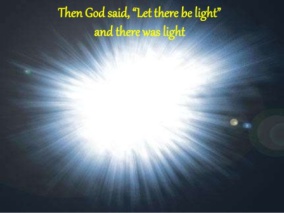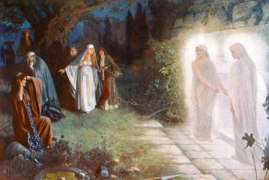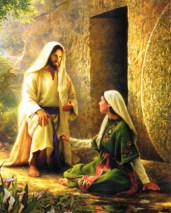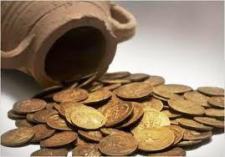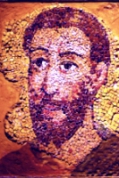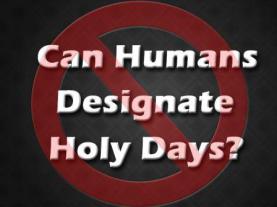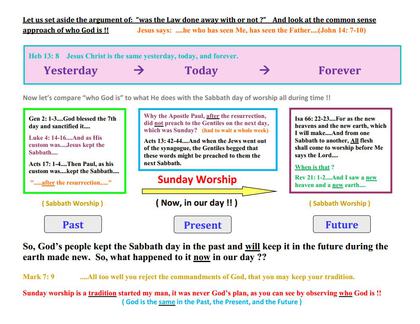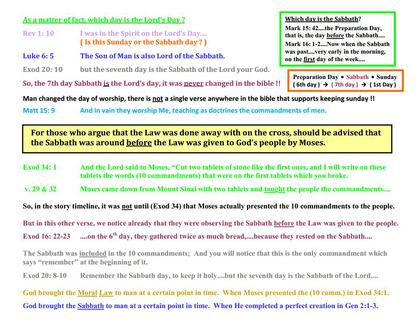Facts about Sunday worship
( page 8 of 9 )
What does the bible say about Sunday worship? There are 9 verses in the bible which record something about the first day of the week (Sunday).
>>>>> To return back for “The Resurrection Day” (page 3 of 9) click here <<<<<
The basic foundational statement of most religious leader’s reason for keeping Sunday as a day of worship:
....we on this side of the Death and Resurrection of Christ, are no longer bound by the seventh-day Sabbath. This was based on the idea that the seventh-day Sabbath was of the Jewish law system, and we as Christians are now under the system of grace. It was contended that the law was “nailed to the cross” and replaced by a better covenant that has Sunday as its day of worship.[1]
The first “Sunday” verse is listed in the old testament.
Gen 1 (v. 3) Then God said, "Let there be light".... (v. 4) And God saw the light....and God divided the light from the darkness. (v. 5) God called the light Day, and the darkness He called Night. So the evening and the morning were the first day.
So these verses state that on the first day God created Light, Day, and Night. There was no record of blessing the first day or making it holy.
Gen 2 (v. 3) Then God blessed the seventh day and sanctified it, because in it He rested from all His work which God had created and made.
The only day that God made special among the other six days, was to sanctify the 7th day and blessed it.
Because He had rested upon the Sabbath, “God blessed the seventh day, and sanctified it,”—set it apart to a holy use. He gave it to Adam as a day of rest. It was a memorial of the work of creation, and thus a sign of God’s power and His love. The Scripture says, “He hath made His wonderful works to be remembered.”[2]
Psm 111 (v. 4) He has made His wonderful works to be remembered; The Lord is gracious and full of compassion.
And since the Sabbath is a memorial of the work of creation, it is a token of the love and power of Christ. The Sabbath calls our thoughts to nature, and brings us into communion with the Creator....And as we behold His power in nature we find comfort, for the word that created all things is that which speaks life to the soul.[2]
II Cor 4 (v. 6) For it is the God who commanded light to shine out of darkness who has shone in our hearts to give the light of the knowledge of the glory of God in the face of Jesus Christ.
The next four verses record "a statement of fact" about the resurrection of Jesus.
Matt 28 (v. 1) Now after the Sabbath, as the first day of the week began to dawn, Mary Magdalene and the other Mary came to see the tomb. (v. 5) But the angel answered and said to the women, "....for I know that you seek Jesus who was crucified." (v. 6) He is not here; for He is risen....
Mark 16 (v. 2) Very early in the morning, on the first day of the week, they came to the tomb when the sun had risen. (v. 5) And entering the tomb, they saw a young man clothed in a long white robe sitting on the right side....(v. 6) But he said to them, "Do not be alarmed. You seek Jesus of Nazareth, who was crucified. He is risen! He is not here.
Since....I was studying church growth concepts as outlined by the first century church, it seemed logical to follow the footsteps of the early christians to see if they walked in the steps of Christ....in relation to the seventh-day Sabbath. The appropriate place to start the quest was at the time of the death of....Jesus Christ. As a general rule, when I as a "Sunday-keeping" Christian had been asked why Sunday is regarded as the Christian Sabbath, I had replied that it was on Sunday that Jesus arose from the dead, and the disciples began to assemble thereon, as a display of their New Covenant faith.[3]
Luke 24 (v. 1) Now on the first day of the week, very early in the morning, they....came to the tomb bringing the spices which they had prepared. (v. 4) And it happened....that behold, two men stood by them in shinning garments. (v. 5) ....they said to them, "Why do you seek the living among the dead?" (v. 6) He is not here, but is risen!
As the Four Gospels are read, a panoramic view of the post-crucifixion hours is recorded....It was then that I turned my attention to the attitude of the disciples on Sunday, the Resurrection Day. It was important for me to observe them, because many have pointed to their assembly as proof of Sunday being the new Sabbath....Some interesting facts became clear after reading of the attitude of the disciples: They were not assembled because of joy, but rather "for fear of the Jews," they were hiding behind doors that were shut for security reasons; they were not worshipping in faith, but were full of "unbelief and hardness of heart."[3]
John 20 (v. 1) On the first day of the week Mary Magdalene came to the tomb early....and saw that the stone had been taken away from the tomb. (v. 12) And she saw two angels in white sitting, one at the head and the other at the feet, where the body of Jesus had lain. (v. 13) Then they said to her, "Woman, why are you weeping?" She said...."Because they have taken away my Lord, and I do not know where they have laid Him."
(verse 14) Now when she had said this, she turned around and saw Jesus standing there, and did not know that it was Jesus. (v. 15) Jesus said to her, "Woman, why are you weeping? Whom are you seeking?...." (v. 16) Jesus said to her, "Mary!" She turned and said to Him, "Rabboni!" (v. 18) Mary Magdalene came and told the disciples that she had seen the Lord....
Now the Sunday preachers claim that these verses commemorate the resurrection of Christ and that we should celebrate it by having a worship service on the first day of the week.
If God were to make such a major change involving one of His finger-etched commandments, surely somewhere in the Bible we would find a record of it! The issue of which day was the Sabbath never arose while Jesus was on Earth. The only controversy, arose over how He kept it.[4]
After examining the scriptures there is no verse stating any change in the original day of worship from Saturday to Sunday. In fact further study reveals that "baptism" commemorates the burial and resurrection of Jesus, rather than a new day of worship.
Rom 6 (v. 3) Or do you not know that as many of us as were baptized into Christ Jesus were baptized into His death? (v. 4) Therefore we were buried with Him through baptism into death.... (v. 5) For if we have been united together in the likeness of His death, certainly we also shall be in the likeness of His resurrection.
Just like He was buried and resurrected once, when we celebrate His burial and resurrection through baptism, we can look forward to our future resurrection in newness of life to be with Him.
While this event is performed once as per our Savior's example, He did implement another ordinance that is to be repeated and also causes us to remember His death, burial and resurrection; the ordinance of communion.
Luke 22 (v. 19) And He took bread, gave thanks and broke it, and gave it to them, saying: "This is My body which is given for you, do this in remembrance of Me." (v. 20) Likewise He also took the cup after supper, saying: "This cup is the new covenant in My blood, which is shed for you. (v. 18) for I say to you, I will not drink of the fruit of the vine until the kingdom of God comes.
This ordinance is to be repeated, in remembrance of what He has done for us, until He comes back.
Mark 16 (v. 9) Now when He rose early on the first day of the week, He appeared first to Mary Magdalene.... (v.10) She went and told those who had been with Him.... (v. 11) And when they heard that He was alive and had been seen by her, they did not believe.
(verse 14) Afterward He appeared to the eleven as they sat at the table; and He rebuked their unbelief and hardness of heart, because they did not believe those who had seen Him after He had risen.
This verse 14 of Mark discussing their unbelief about His resurrection is the same scene recorded about the gathering of His disciples in the book of John chapter 20.
John 20 (v. 19) Then, the same day at evening, being the first day of the week, when the doors were shut where the disciples were assembled, for fear of the Jews, Jesus came and stood in the midst....
Now some ministers will quote this verse as the "first" Sunday service when Jesus came back into their fellowship. But the text says that they assembled "for fear of the Jews" and probably were wondering who the Jews would arrest next. Since their beloved master had been arrested, executed, and many of the disciples did not even believe that He was already resurrected.
Read the verse yourself, there is no mention of an official change of worship service from Saturday to Sunday. If this was a really important change, this scene in front of all the disciples would have been a very good opportunity to state clearly how they were to worship Him.
Think about it for a moment. If the day had been changed or forgotten between Adam’s time and Moses time, God would have rectified it when He wrote the Ten Commandments at Sinai. If the Sabbath day had been lost between Moses time and Jesus time, Christ would surely have set the record straight.[4]
Going back to the book of Mark chapter 16, right after He rebuked their unbelief, He gave them the Great Commission.
Mark 16 (v. 15) And He said to them, "Go into all the world and preach the gospel to every creature." (v. 19) So then, after the Lord had spoken to them, He was received up into heaven, and sat down at the right hand of God.
Once again, there was no mention of a change in the day of worship, the bible is silent and then He left and went to heaven.
With seven "first day" texts examined, without the hint of instituting a Sunday service, we will now look at the eighth text used by preachers to claim a reason to worship on Sunday, the first day of the week.
I Cor 16 (v. 1) Now concerning the collection for the saints, as I have given orders to the churches of Galatia, so you must do also. (v. 2) On the first day of the week let each one of you lay something aside, storing up as he may prosper, that there be no collections when I come.
This verse is often cited as an offering collection during a church service on Sunday, since it was the first day of the week. Now when you read the verse again, there is no mention of collecting a tithe as is common during a church service; but rather a collection for the poor. Two other verses comment on what this was all about:
Acts 11 (v. 27) And in these days prophets came from Jerusalem to Antioch. (v. 28) Then one of them....stood up and showed by the Spirit that there was going to be a great famine.... (v. 29) Then the disciples, each according to his ability, determined to send relief to the brethren dwelling in Judea. (v. 30) This they also did, and sent it to the elders by the hands of Barnabas and Saul.
So there was a famine in that region and the Apostle Paul was traveling to the churches who wanted to give a contribution for the saints in Jerusalem.
Rom 15 (v. 25) But now I am going to Jerusalem to minister to the saints. (v. 26) For it pleased those from Macedonia and Achaia to make a certain contribution for the poor among the saints who are in Jerusalem.
If this was really a church service, why didn't they just have an extra offering to set aside for when the Apostle Paul came by to pick it up, on his journey through that region? Probably because, they did not goto church on the first day of the week.
So he told them to (v. 2) "lay something aside" more than likely at their home or place of business. He didn't seem to have time to wait for an offering when he came through that area as the verse states (v. 2) "that there be no collections when I come." So they had to have it ready when he came by.
These christians all kept the Sabbath holy, set aside for worship & resting, according to their custom. So the Apostle suggested that on Sunday morning, after the Sabbath was over, they put aside something for the poor saints affected by the famine.
Exod 20 (v. 8) Remember the Sabbath day, to keep it holy. (v. 9) Six days you shall labor and do all your work,
(v. 10) but the seventh day is the Sabbath of the Lord your God.
Acts 20 (v. 7) Now on the first day of the week, when the disciples came together to break bread, Paul ready to depart the next day, spoke to them and continued his message until midnight. (v. 8) There were many lamps in the upper room where they were gathered together.
So verse 8 would imply that this church service was in the evening and they were there to break bread. Is that common to have a church service in the evening and does breaking bread represent having a communion service too, as some suggest?
A complete reading of the whole chapter will reveal that the Apostle Paul had this long talk until midnight because he was leaving and was not sure if they would ever see him again.
Acts 20 (v. 22) And see, now I go bound in the spirit to Jerusalem, not knowing the things that will happen to me there.... (v. 25) And indeed, now I know that you all, among whom I have gone preaching the kingdom of God, will see my face no more.
If this was really a communion service at church, why is there no mention of wine being used? In fact the instance of breaking bread on the first day of the week does not constitute it as a holy day. See the verse below about breaking bread:
Acts 2 (v. 46) So continuing daily with one accord in the temple, and breaking bread from house to house, they ate their food with gladness and simplicity of heart.
The believers would frequently meet together to break bread and have fellowship every day, not just on a holy day.
Only the creator can make a day holy, and God established the seventh day of the week as the Sabbath day.
Gen 2 (v. 3) Then God blessed the seventh day and sanctified it, because in it He rested from all His work which God had created and made.
The first day of the week is Sunday and the bible lists it as just an ordinary work day. The normal church day for God's people has always been on the seventh day Sabbath.
Ezek 46 (v. 1) Thus says the Lord God: "The gateway of the inner court that faces toward the east shall be shut the six working days; but on the Sabbath it shall be opened....
The below two page document sums up the whole Saturday / Sunday issue as from the perspective of who God is.
References:
1. Dan Jarrard, (2008). Why I am a Sabbath-keeping Christian, p.17
2. E.G. White, The Desire of Ages, p.281-282
3. Dan Jarrard, (2008). Why I am a Sabbath-keeping Christian, p.31,35,36
4. Mark Finley, (1995). Beyond Orion’s Gates, p.149, Hart Research Center.
